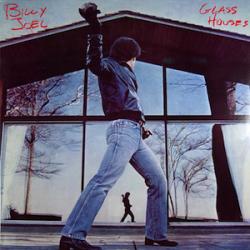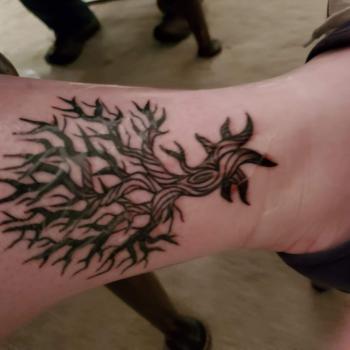
Trust me when I say there is no satisfaction in revealing your abuser.
It doesn’t matter if it’s a stranger, a boyfriend, a friend, a parent, a relative… it doesn’t matter what kind of abuse. No one believes you.
That’s hyperbolic. There are some who believe. Mostly, the group of believers is made up of other abuse victims, relieved to find out they aren’t the only ones who are haunted by these experiences. But there’s a lot of public outcry when an abuser is revealed—mostly against the victim. “He loves you, she loves you, you hung out with him all the time, you look happy in the photo, you didn’t say anything at the time, you willingly visited her, he’s a good guy, you’re a little too sensitive, you need something to blame for the way you were acting at the time, you just didn’t like him.”
Certain places and people hold fast to what they believe to be good Church teaching, good policy, and good politics. They believe teaching young people not to have sex and creating rules that make having sex very tricky is sufficiently “job done.” In fairness, signs have emerged of further efforts—of mentioning here and there that, in a crisis, a designated person is ready to hear your story.
But that’s all it is to them—a “story.”
When you’ve been abused, you’ve been made involuntarily, frighteningly vulnerable. Your first instinct is to save and protect yourself to whatever degree is possible. You would honestly rather forget than get justice. But finding oblivion unattainable, the only remaining hope for peace is justice.
And victims go through life facing people who don’t get it. Your fear, your panic, your brokenness, your pain, your search to be safe again…. But you’re never really safe. Safety is an illusion, and once the illusion is broken, it can never come back. You’re always haunted by the knowledge of what people might do.
And even those who love you, even those who believe you, they might wish you would shut up, that you would mend fences, or that you would just move on and trust again.
Even those who love you will wish you’d be a little less dramatic about it.
This is not a performance. Who thinks that admitting they were abused will get them what they want? Really, it usually results in confrontations with the abuser. It usually results in criticism from trusted friends who choose the abuser. No one wants to believe an abuser can also be a functioning human being, holding down a job and wearing khakis and hiking with his buddies. No one wants to believe an abuser can also be a soccer mom with three healthy, smart kids. If they sketched an abuser, they’d picture someone jobless with a heavy five o’clock shadow in a dirty wife beater, holding a beer can and probably cussing up a storm. Or someone of color.
And for unfathomable reasons, some people think abuse that happened anytime over a year ago is old news, not worth mentioning.
If, in the fight over rape cases, you’re on the side of an institution rather than an individual, you need to think about it again. If, in the fight over rape cases, your heartfelt belief is that men should not be inconvenienced by the process of a fair and thorough investigation, think again. If, in the fight over rape cases, you object to lawful and ethical responses to trauma and crime, revisit your Catechism.
If, in a victim’s fight for justice, you don’t stand with him or her against abuse, you don’t stand with Jesus.
I wonder… if there were a higher risk of consequences, would men start to worry about the risks of being around women? That’s not the society I fight for. But then maybe they’d start to understand.
Elizabeth Kelleher is a rambler and a nature lover. She currently lives in the deep south, teaches in a Catholic high school, and attempts to find God. She is a frequent contributor to The Shoeless Banshee. See one of her other pieces here: If you want me, come find me.
Image Credit:
https://pixabay.com/en/woman-solitude-sadness-emotions-1958723/












